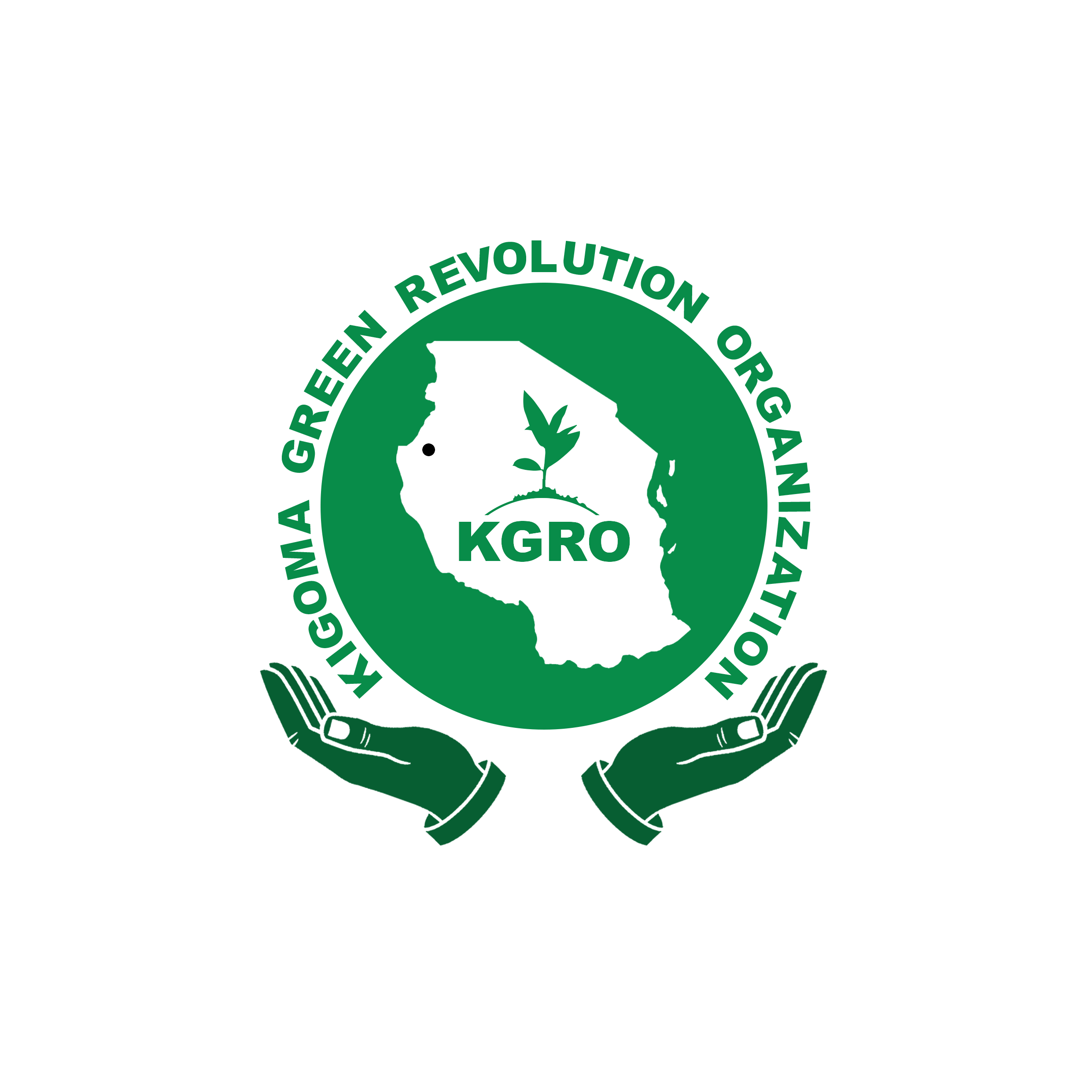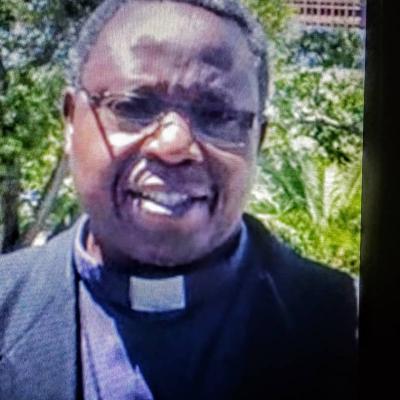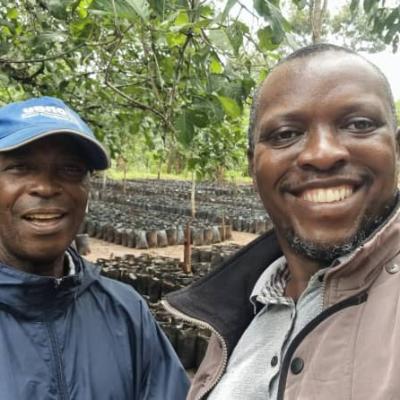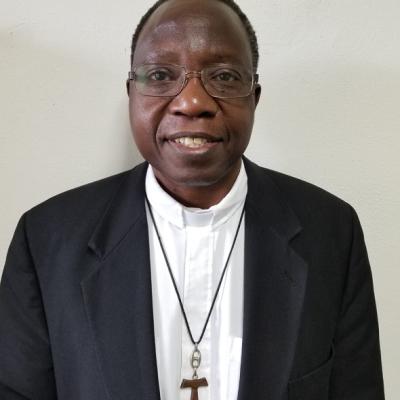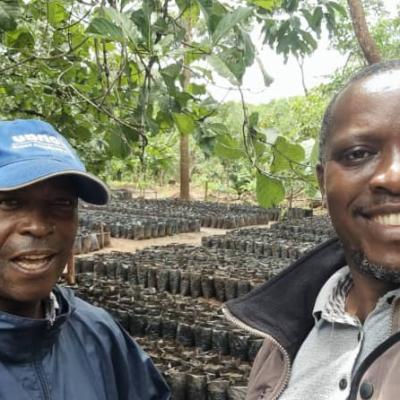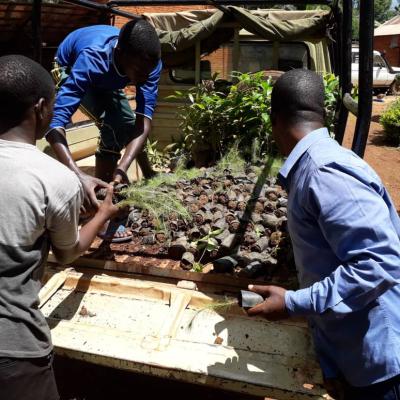The Kigoma Green Revolution Organization Organization Profile
Kigoma Green Revolution Organization [KGRO] is developing from the initiative born of Kasumo Parish [Kigoma Diocese, Tanzania] which, realizing the dire environmental concerns in the area, began to mobilize parishioners to plant trees at nearby hill tops, to cater for improvement of rain catchment [The Gipfizi / Ndundugwa Hill Project]. The initiators of the Gipfizi Hill Project soon found people interested in environmental conservation and in due course formed the KGRO NGO which has just been registered with 22 members [including engineers, teachers, accountants, clergy, and other professionals]. The aim is to expand environmental protection and development to the rest of Kigoma region. Environmental development also has in view the improvement of peoples’ nutritional status. This organization, under its leadership, is focused on bringing awareness among societal members about health and environmental issues in the region. It will therefore embark on education of local communities, establish tree demonstration plots or farms, and introduce tree nurseries where communities and individuals may acquire tree seedlings. Since the area of operation is large, and the work ahead immense, KGRO plans to implement its objectives using individuals and institutions other than this NGO itself. Schools, Churches, Mosques, Villages will be coopted, as long as they are able to follow directives and guidelines that will be established by KGRO. On its part, KGRO will be a supervisory body with hired or rent professionals from the government or other institutions. The aim is to have an ongoing momentum of concern for health and environment, such that ultimately as much land as possible is covered by vegetation; meals are nutritionally healthier with fruits and vegetables; streams and rivers are stopped from drying up, and flora and fauna become something that is not simply found and used to depletion, but established, developed, and protected. KGRO will use its own resources [monetary or otherwise] from members’ free contributions as well as charitable donations from the Tanzanian Government, well-wishing individuals and organizations, local as well as international, through project write-ups and fund-raising initiatives.
Situation Analysis [Problems and Needs]
In Kigoma Region, just like in many other places, land has been plagued by poor agricultural practices, overgrazing, bush fires, rampant tree cutting, and ill-beliefs in everlasting resources. Renowned for its green cover and ever-flowing rivers and streams years past, one wonders whether there is anything that can be done to rectify the situation. Somehow there has been good initiatives directed at combating adverse effects of human land use. Traditionally, people resorted to migrating to better lands for farming, but [for Kigoma Region] not so much for grazing. With increase in human population, migration is now not tenable, and, consequently, some other modern solutions have been practiced. With the influx of refugees from Burundi [since as early as the late 1950s], Rwanda and the Democratic Republic of Congo, as a result of continued wars and tribal conflicts, more pressure was put on land and its resources, and the UNHCR with partnering NGOs went into solving some human issues including the environmental problem, but only as far as areas close to refugee camps were/ are involved. Additionally, Kigoma peoples’ nutritional status is rather low. Many despise the use of fruits [considering it children’s food], and hardly use vegetables. Even water-drinking is not at the recommended level.
Objectives and Goals
KGRO aims at being the lead agent into educating local communities in the proper ways of life to safeguard the environment and improve their health. The objective is to cover all bare land with trees, but also to establish fruit trees. At the moment KGRO is focusing on Avocado Fruit Production and Palm Oil Production. Our goals include: to have as many Kigoma residents as possible knowledgeable in environmental hazards, what contributes to it and how they will be involved in environmental protection; have families plant trees, especially fruit trees in the plot of land they own; foster groups and individuals to open up plantations for economic gain – since land is still available; encourage families to have small gardens from which they can have vegetables, and ensure they become part of their meals; improve water drinking habits.
Methodology and Administration
KGRO, with its 22 members, has a constitution that guides it operation. It has leaders in the form of Chairperson, Secretary, Treasurer, and all three with their assistants. Other members have been assigned to do advisory work [in view of their expertise], project writing, and coordination with governmental bodies and other environmental stakeholders. Communication among members is by modern means of phone calling, messaging, zoom-conferencing as well as emails. Implementation, as said, will be by training – through use of meetings and seminars; pamphlets and leaflets; videos / cinemas and visits to established farms and nurseries, in and outside the region. Through established guidelines KGRO [as the supervisory agent] will go into alliance with individuals or institutions like villages, churches and schools as the actual implementors of projects geared toward health and environmental improvement. KGRO will oversee the execution of the project for an agreed period of time and then leave it entirely to the implementer. KGRO has its headquarters in Kigoma town – Tanzania.
Resources
Resources include land belonging to individuals or to institutions. It also includes funds that are being contributed by members of KGRO, and those expected from donors. There may be funds available as grants from the government. Human resource is of the essence and will be availed from hired experts [say for training, agricultural demonstration, etc.] and volunteers.
Scope and Schedule
This year, 2022, will be our year of take-off. Environmental protection is an ongoing endeavor, but we will make schedules with individuals and institutions in the form of Projects with definite time limits and scopes. These may be renewable. Depending on a project [covering 3, 6 or more years] there will be periodic evaluations to ensure success of individual projects. KGRO will oversee the Environmental Programme, while implementing partners will be doing the Projects. KGRO will make mid term evaluations after 3 [or half-way a project] and then at 6 years of implementation.
Conclusion
It is hoped that with time, as the envisaged activities are properly implemented, there will be more green lands on the hills and in the valleys. We envisage an environment where humans are more friendly to trees, birds, and animals. We also envisage a time when humans will be healthier, as they eat and drink better. Hopefully more people will join the wagon, so that more and more people will give hand to our endeavors on the environment, not only the implementing institutions but the people at local level – say in the villages.
